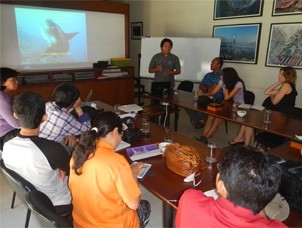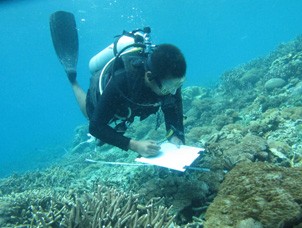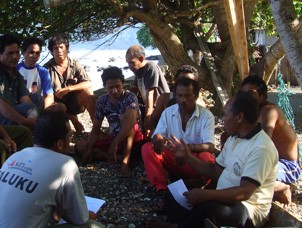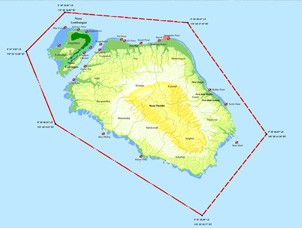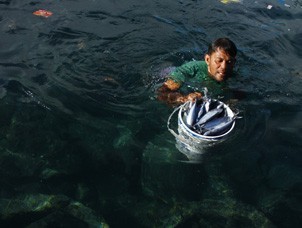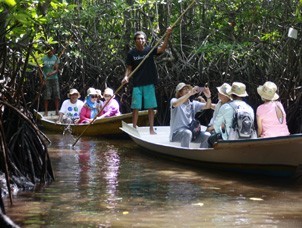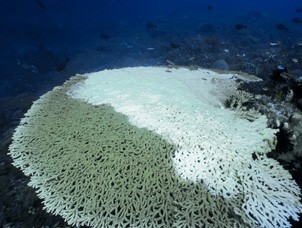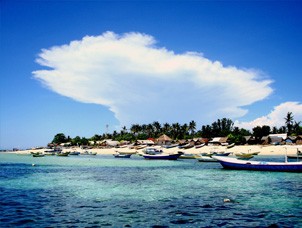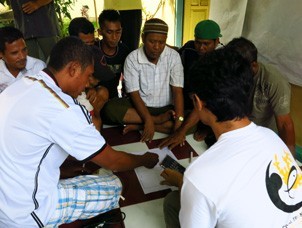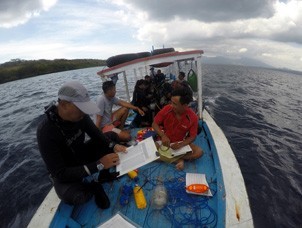Communications for Marine and Coastal Management
Communications for Marine and Coastal Management
Marine and coastal ecosystems have evolved over many millennia into what we see today. Without human intervention, the only threats to these ecosystems were natural disasters, such as volcanic eruptions or earthquakes, and geological shifts such as the ice ages.
Marine and coastal ecosystems have been shaped and formed by the impact of these damaging and large-scale natural events throughout geological history. But never in the history of this planet has one species had such a dramatic impact on the marine environment. Over a short time period, humans have wrought such tremendous and ruinous changes that adaptation is often impossible, leading to ecosystem demise and species extinction.
Therefore, when we think about managing a marine and coastal ecosystem for both biodiversity and food security, we are generally talking about managing people, their behavior and their relationship to natural resources. As such, appropriate communication skills are an essential and integral component of any marine and coastal manager’s (or team’s) skills portfolio.
COURSES AVAILABLE
This course provides a basic introduction to techniques and tips for facilitation in the context of Marine Protected Areas and is a basic training for learning core facilitation techniques. Participants gain the knowledge and skills needed by a facilitator to effectively lead group discussions.
Objectives
-
To teach the principles and basic skills, approaches, and attitudes needed to be a good facilitator.
-
To teach the principles and basic skills, approaches, and attitudes needed to be a good facilitator.
-
To demonstrate the processes of group facilitation.
-
To teach participants how to handle group discussions, including how to cope with difficult situations during group facilitation.
Intended Audience
This training is tailored for:
-
Community organizers
-
Community organizers
-
Other key stakeholders who will be facilitating public and group discussions and consultations on Marine Protected Areas
Minimum Requirements
-
High school degree or equivalent
-
High school degree or equivalent
Language
This training can be given in Bahasa Indonesia and/ or English.
Duration
Four full days, but can be extended to five days with additional field activities.
This training is designed for teachers at various levels, from elementary to high school. The training intends to present the importance of marine conservation and share with participants recent insights on the design, development, and management of Marine Protected Areas. Participants will learn the basics of the population dynamics of exploited species and how these dynamic systems relate to resource use and exploitation. The training uses examples from all over the world with a strong focus on the Indonesian context.
The course is based on the Principles of MPA Management program also available at CTC. It is is tailored to support teachers to modify the information learned for delivery in classrooms and to adapt it to their local contexts. By the end of the training, it is expected that participants will have a better comprehension of basic marine conservation principles and an understanding of how to integrate them into their teaching materials.
Objectives
-
To convey the foundational concepts of marine conservation.
-
To convey the foundational concepts of marine conservation.
-
To teach participants about MPAs as a tool for marine biodiversity conservation, sustainable fisheries, and marine resource management.
-
To convey the basic principles of MPA management.
-
To enhance interest and awareness in marine resource conservation.
Intended Audience
This training is tailored for:
-
Teachers of elementary to high school level (or equivalent)
-
Teachers of elementary to high school level (or equivalent)
-
The course can be tailored to suit teachers working at other educational levels as desired. It is particularly relevant for teachers responsible for classes in biology and the natural sciences.
Minimum Requirements
-
Practitioner teachers
-
Practitioner teachers
-
Basic knowledge of English preferable
Language
This training can be given in Bahasa Indonesia and/ or English.
Duration
Three full days with additional one day field trip option.
Other Courses



